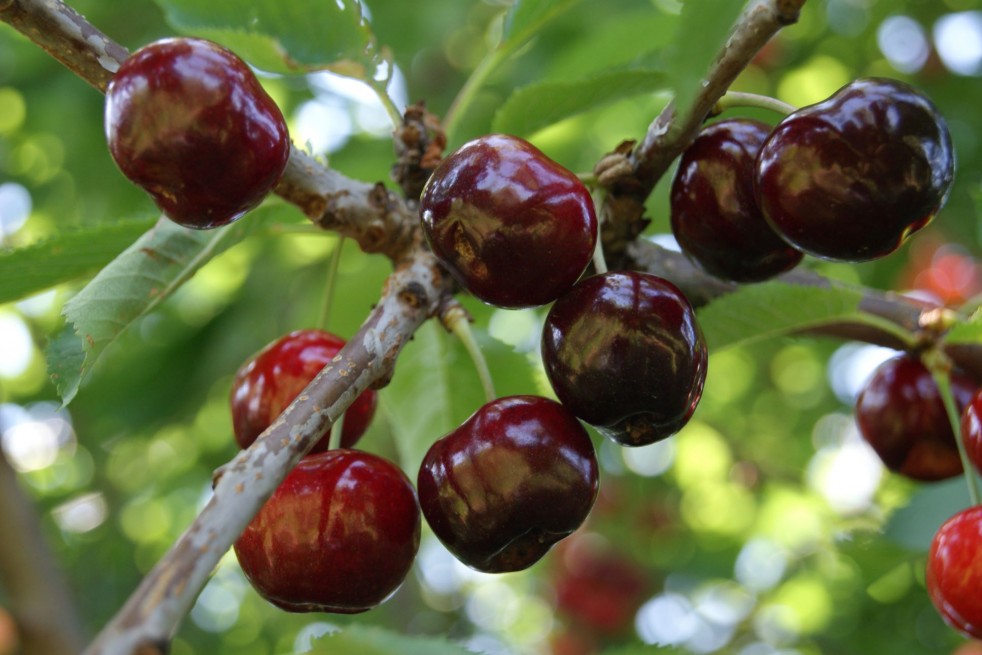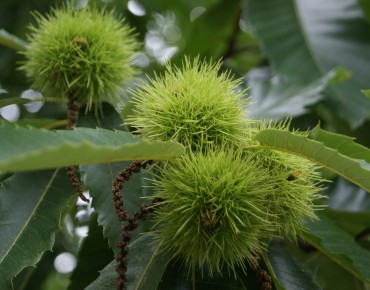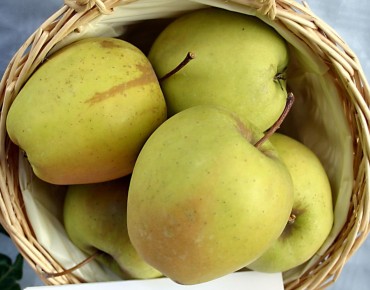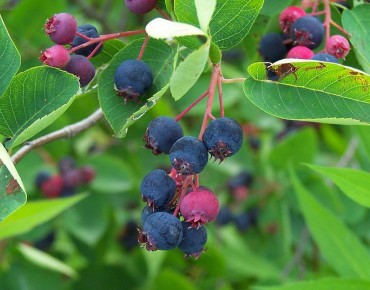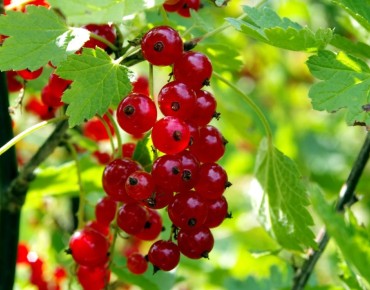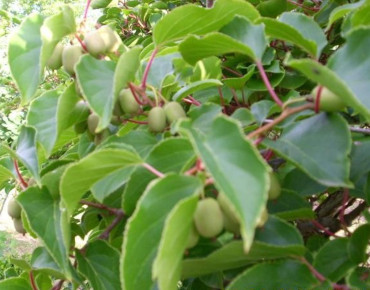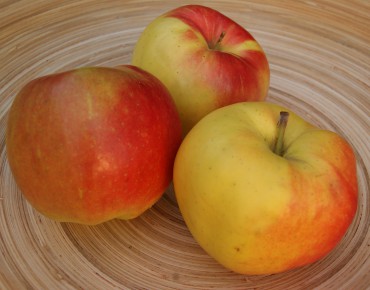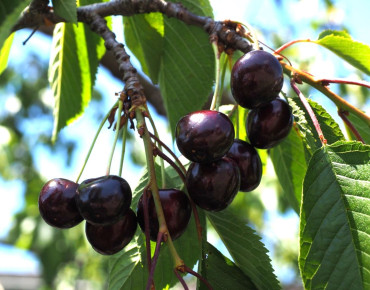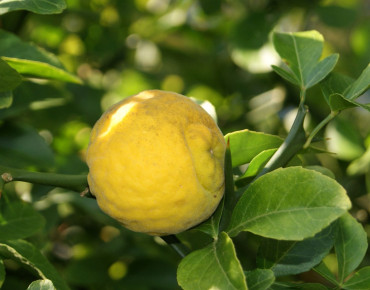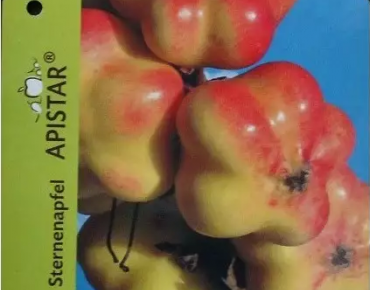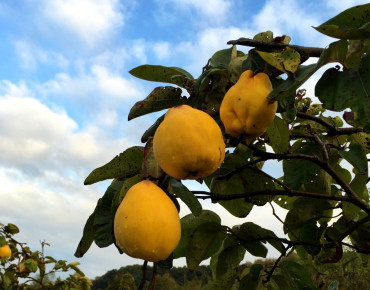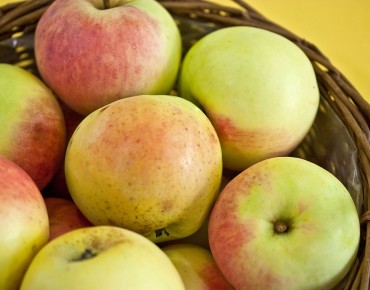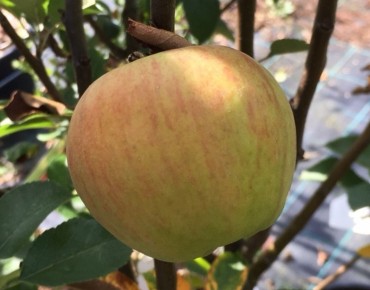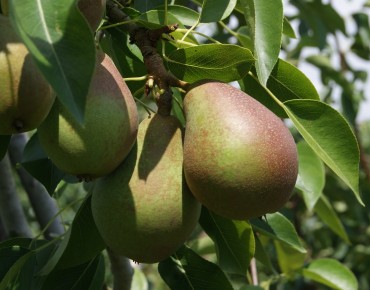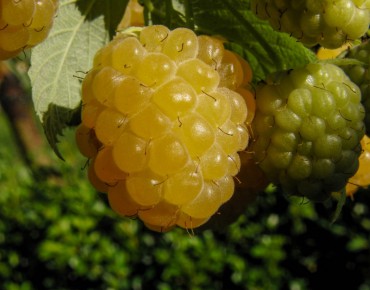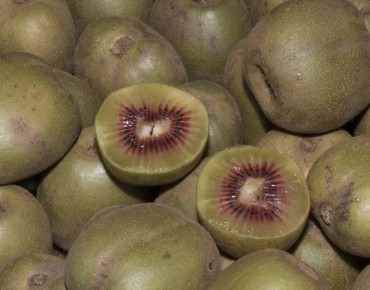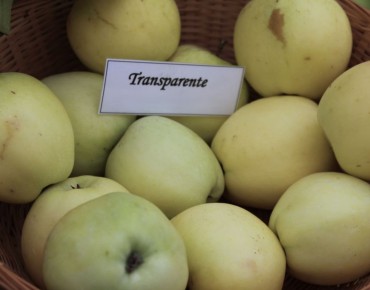Cherry tree bigarreau Marmotte
Prunus avium Marmotte
Description
Prunus avium Marmotte, more commonly called Cherry tree bigarreau Marmotte, is an old and early variety of cherry tree. It is a fruit tree prized for its juicy and sweet fruits with good resistance to bursting. Marmotte cherries are distinguished by their generous size and smooth skin, a deep, shiny red, sometimes turning purple when ripe. Their firm flesh offers a sweet and slightly tart flavor, a perfect balance that delights the taste buds of cherry lovers.
The Prunus avium Marmotte, a semi-erect tree, is grafted low stem and can reach a height of 3 to 4 meters. In spring, it is adorned with dark green, shiny foliage, which serves as a backdrop for a spectacular bloom of white flowers in March/April. Fruiting begins in late April early May and is ready for harvest at the end of June, successful pollination is often ensured by varieties such as the Burlat cherry, Moreau, Reverchon, or Early Rivers. The hardiness of -20°C of the cherry tree bigarreau Marmotte allows it to withstand cold winters. It prefers sunny exposures for better fruit production.
For optimal cultivation, it is recommended to plant the Cherry tree bigarreau Marmotte in autumn or early spring, in light, well-drained soil rich in organic matter. Regular watering during the first year will help establish a strong root system. Pruning is not necessary, but can be considered in July to maintain the shape of the tree and encourage fruiting. Finally, its place in the garden is often central, isolated or in alignment, where it brings a touch of colour and deliciousness to the landscape.
Features
- Common name : Cherry tree bigarreau Marmotte
- Family : Rosaceae
- Category : grafted low stem fruit tree
- Spread : 3 to 5 m
- Foliage : deciduous
- Color of flowers : white
- Fruit : large, bright, juicy, sweet and tart red cherries
- Harvest : end of June
- Use : isolated - orchard
- Soil : light, well-drained and fertile
- Habit : upright
- Enemies : aphids - caterpillars
- Possible diseases : resistant to diseases
Expédition & livraison
How does the delivery work?
 As soon as you place your order your plants are selected
As soon as you place your order your plants are selected Each order is processed individually.
Each order is processed individually. Plants are packed, staked and labeled.
Plants are packed, staked and labeled. Packaging is carefully implemented to avoid any problems.
Packaging is carefully implemented to avoid any problems. Packages are ready to be shipped.
Packages are ready to be shipped.
Our delivery methods
Shipping of our plants throughout Europe (except overseas and islands).
Customer reviews

